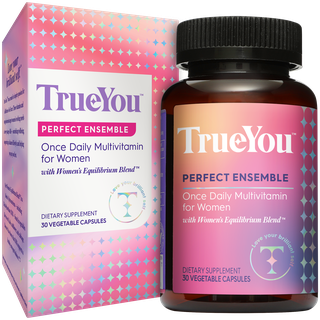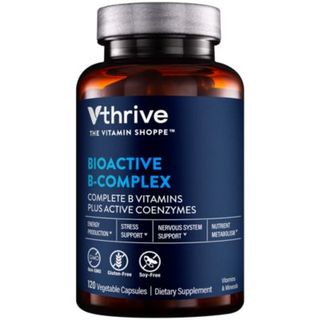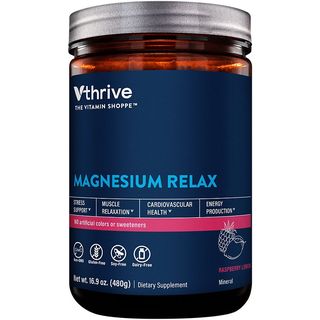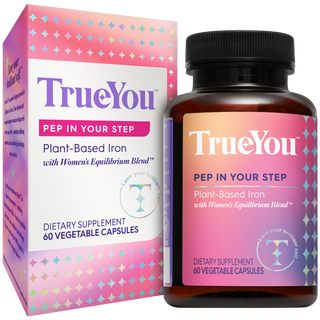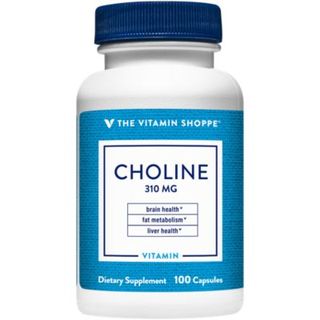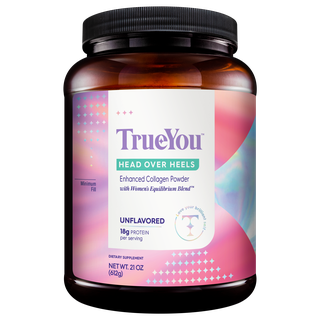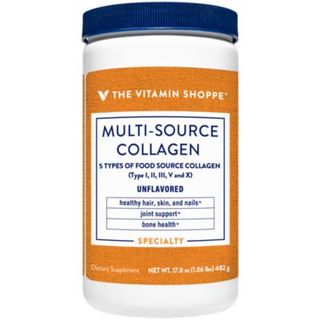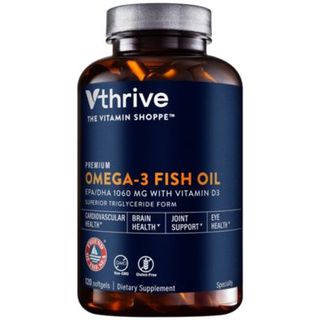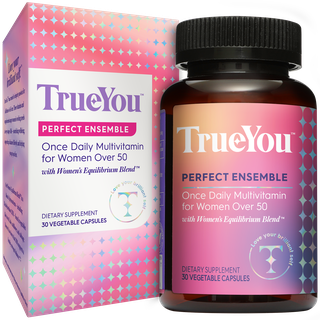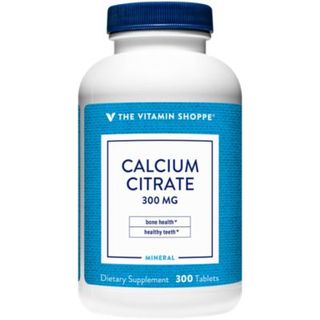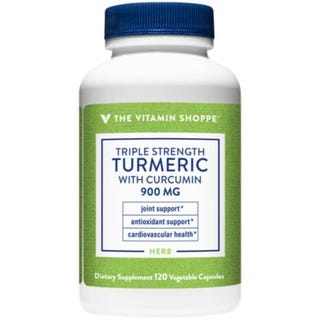Your medicine chest probably looks a lot different than your mom’s. There are the unintentional differences: the signature red nail polish camped out in the back corner of hers forever versus the untamed collection of lacquers in yours. But there are also the ways it should look different.
At each life stage, there are specific supplements that can support you. While you might need an extra boost of magnesium in your 20s, calcium is especially important later in life, for example. And folate is paramount in your childbearing years.
A good starting place? A multivitamin formulated for your age, like TrueYou Perfect Ensemble daily supplements, which have many of the nutrients women need most and come in two varieties: one for women younger than 50, and one for those who are older than 50. “They both have a comprehensive profile of antioxidants, vitamins, and minerals,” says Brittany Michels, MS, RDN, LDN, registered dietitian at The Vitamin Shoppe.
To shop the multi that matches your life stage, and get the breakdown of the other nutrients that best support you at each life stage, read on.
Your Twenties
This decade of life is when paths really start to diverge. Whether you’re spending all your time at work, packing your social calendar to the brim, taking classes, starting a family of your own, or a blend of all of the above, you’ll need two important nutrients: vitamin B and magnesium.
“Women who are busy or have overwhelming schedules should focus on B vitamins, as these vitamins become depleted with stress,” Michels says. “Birth control medication can also deplete vitamins such as B2 (riboflavin), B9 (folate) and B12 (cobalamin).” This is why a multivitamin that contains B vitamins and/or a B-complex vitamin is so important.
Magnesium, on the other hand, is needed for more than 300 processes in the body, including energy production and blood pressure regulation. This mineral is depleted not only by stress but sweat, too. “Magnesium also has a muscle- and mind-calming effect, so consider supplementing at nighttime to support your bedtime routine,” Michels says.
Pregnancy
Focus on iron and folate during your childbearing years and throughout your 30s, Michels advises. Iron and folate have been shown to both support proper fetal growth and development (decreasing risk of neural tube defects), as well as support mothers (by decreasing risk of anemia, for example). Choline is also important for fetal growth and development. “This nutrient is needed for several body processes, including neurotransmitter production and brain development,” Michels says.
Vitamin D deficiency is common at every age and can negatively influence your metabolism, hormones, immune system, and mental health, Michels says, adding. “If daily direct sunlight is inadequate, consider supplementing with 1000 to 2000 International Units (IUs) daily.”
Middle Age
Now’s the time to pay attention to collagen—the most abundant protein in the body—which makes up the structure of your hair, skin, nails, joints, bones, cartilage, tendons, and gut. “The amount of collagen in the body decreases as we age,” Michels says. On the upside, studies have shown that taking collagen peptides can help minimize negative effects like the appearance of wrinkles and can ease joint movement.
Now’s also the time to get more serious about omega-3 fatty acids. “It’s important that you take omega-3s consistently in your 40s and beyond,” Michels says. “These fatty acids help to support brain and heart health.” Aim for two to three servings of low-mercury seafood—like shrimp or salmon—per week and consider fish oil or flax seed oil supplementation if you’re unable to meet dietary goals.
Menopause
“Because bone mass decreases as estrogen levels decline, it’s vital for women over 50 to meet their daily calcium needs,” Michels says. “Calcium is the most abundant mineral in the body and makes up the structure of our bones and teeth. It also assists in blood vessel dilation and contraction, blood clotting, muscle function, nerve transmission, and hormone secretion.”
For most of a woman’s life, she’ll need 1,000 milligrams per day (a serving of plain, low fat yogurt is just under half a day’s worth of calcium), but once you’re in your 50s the daily suggestion ups to 1,200 milligrams, making a calcium supplement helpful.
In addition to calcium, turmeric can also be an important add-on to your stay-healthy arsenal. “Turmeric is a plant of the ginger family that offers a wide range of benefits, from balancing hormones to providing antioxidants,” Michels says. Studies have also shown that curcumin—a compound in turmeric—can increase bone density, another reason to consider adding it to your medicine cabinet.
This content is created and maintained by a third party, and imported onto this page to help users provide their email addresses. You may be able to find more information about this and similar content at piano.io

